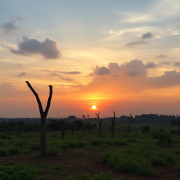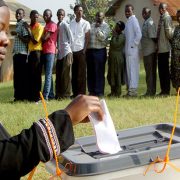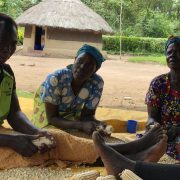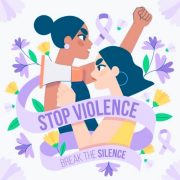Beyond Taboo: The Law, the Culture, and Surviving Sexual Violence — A Case of Northern Uganda
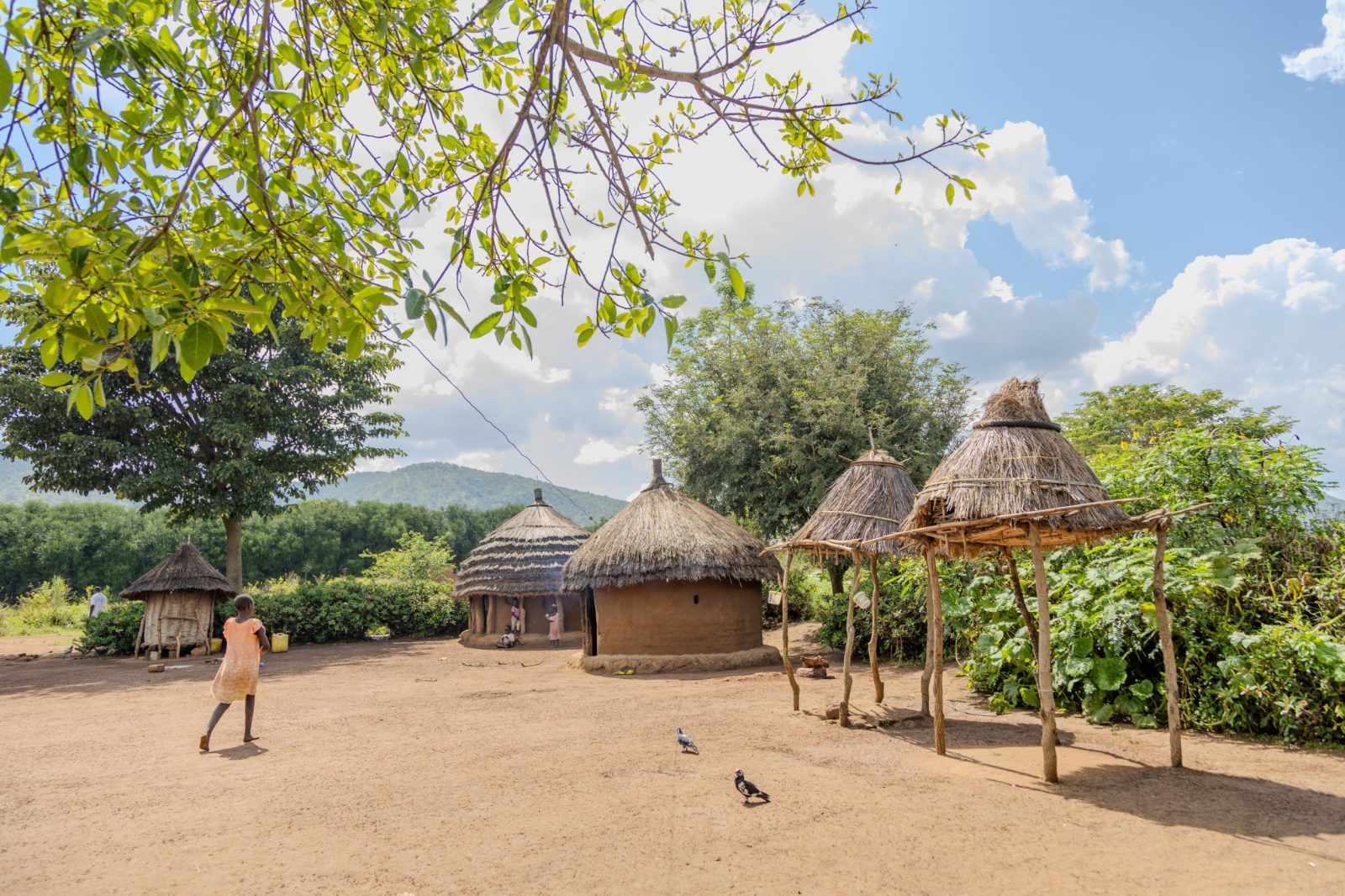
To 14-year-old Akello (not her real name), the man who lived next door was her father’s brother, the kind who checked on her when her mother was at the market.
He bought her exercise books, sometimes shared stories by the fire, and promised to support her dream of becoming a teacher. Around him, she felt safe.
But safety can be a mask.
It began with touches she could not name, then long embraces that left her uneasy. He would laugh it off, saying she was like a daughter to him. She wanted to believe him. She needed to. But soon, the visits grew darker. One evening, when her mother had not returned, he locked the door.
That night, Akello’s childhood ended.
“I thought it was my fault,” she recalls softly, her eyes fixed on the ground. “I didn’t tell anyone. He told me no one would believe me.”
It wasn’t a single incident. He came back again and again. What had begun as kindness slowly curdled into control. The man who had promised to help her reach her dreams instead chained her with silence. Within months, Akello stopped going to school. To everyone, her cry for help looked like teenage rebellion. At night, she dreamt of running, but her feet never moved.
Groomed, Akello felt trapped, and soon it became a full-blown relationship. For months, this went on, and she lost her will to live, dreading each day she was left alone or in his company. Each time she tried to find a way to leave with her mother, he found a way to have her return home.
“When I would cry to go with my mother or just leave home, I was called a rebellious teenager, and he was there to be the understanding uncle, always explaining my behavior for me.”
They say a mother always knows, and soon she picked up on the behavior of her in-laws and questioned her daughter. When she learned the truth, she felt a rush of regret, pain, anger, and hopelessness. She was a widow, after all, and there was little she could do.
There was no evidence, and she needed it. Laying low and keeping a close eye, she devised a trap.
“She pretended to head to the market and hid nearby. It took some time, but he showed up, and as soon as he was in the house, she pushed the door while raising an alarm.”
The matter was escalated to the police; however, they questioned Akello and made her feel like she was in a consensual relationship. Her mother was also blamed for raising a “wayward” daughter.
The man was detained and awaited arraignment, but the process took a toll on their family, who felt publicly humiliated. To stop their brother from serving time, the late husband’s family called for a meeting where Akello was grilled once more, trying to recast the abuse as an agreement between the two.
“I was questioned on how many times it happened and why I didn’t report. They said I must have been interested too — after all, it was happening for months,” she narrates.
Pushed to the corner, her mother was asked to withdraw the case from the police, insisting it would be resolved culturally and at the family level.
Worse, even the women who could have stood their ground taunted her mother, asking why she would expose her dirty linen in public.
Released from detainment, the uncle denied the allegations and accused them of trying to tarnish his name. Sadly, the family believed him. To ease the tension, a cultural ceremony was performed, and the man went on with his life, slapped with just a caution.
Akello, unable to bear the betrayal, left home and never looked back, abandoning her mother and anything to do with the family. There was no guarantee it would not happen again.
As a common saying goes, the things of the house are not tattled on.
Akello’s story mirrors those of thousands of girls across Uganda, where sexual violence is not a singular act but a repeated violation that thrives on trust, silence, and stigma.
National surveys reveal that one in three girls is sexually abused before turning 15, and more than 75 percent of young adults faced abuse in childhood. Police data shows that in 2023 alone, over 14,000 cases of defilement were reported countrywide, though fewer than half reached court.
This is because speaking about sexual violence invites shame. It is worse when it pulls families into internal conflict because sometimes the perpetrator is inside the home — a father, guardian, or neighbor.
In such scenarios, speaking up is betrayal, and staying quiet is termed as protection.
The Law Is Clear — The Path Is Not
Before formal legal systems, African societies, including Uganda, relied on cultural leadership. Crimes were judged by elders, councils, and cultural authorities. Before penal codes, cultural systems existed to punish offenders, including sexual offenders.
“In Acholi, we frown upon all kinds of immorality, and that includes incest, whether by choice or coercion. We have laws that prescribe punishment for such acts,” says Rwot David Onen Acana II.
The taboo of incest in Acholi extends to the entire family unit, including extended relatives up to five or seven cousins away. Similar structures exist across Ugandan cultures, governed by clan systems that prohibit relations within the same clan.
Uganda is governed by state law, followed by cultural structures for specific tribes — kingdoms headed by a king and council, subdivided into clans, and then families.
Before legal reforms that set the age of consent at 18, a girl was considered of age at her first menstrual period — a practice common in many cultures. Today, Section 129 of the Penal Code Act defines anyone below 18 as a child. The Children Act (2016) reinforces this and prohibits sexual exploitation.
While culture and state law coexist, the latter supersedes. Yet cultural barriers — especially within families — hinder enforcement.
“The law prescribes life imprisonment for defilement and strict sentences for rape, but cultural pressure leads families to withdraw cases. By the time victims reach us, the abuse has often been repeated many times,” Ojok adds.
Uganda’s Penal Code criminalizes incest and defilement and provides heavy penalties, including life imprisonment, where minors are involved. Yet legal experts and police officers say the gap between the law on paper and lived justice is wide.
“Legally, incest and defilement are crimes,” says ASP David Ongom Mudong, Aswa West Region. “But the challenge is when the family decides to block legal processes. They are under social pressure to hush things up — evidence is lost, witnesses are intimidated, victims retraumatized.”
According to the Women Probono Initiative, most defilement cases reported to police involve family members and often end without conviction due to withdrawal of complaints, lack of witnesses, or community mediation. Police records show a high attrition rate before prosecution.
Finding Loopholes in Culture: Silence, Cover-Up, Displacement
Nationwide, incest and sexual violence are taboo, yet responses differ. Sexuality is a closely guarded conversation, rarely discussed publicly.
Culture dictates that matters of intimacy remain within the four walls of the home. When sexual immorality occurs within families, it is handled quietly to avoid community backlash.
Families bury cases under clan rituals or compensation, choosing silence over justice.
“It is this silence that emboldens perpetrators,” says Ojok Micheal, founder of Hashtag Uganda, an organization supporting survivors in Gulu.
Families justify silence because incest is taboo and rape is shrouded in shame. Survivors carry stigma for crimes committed against them.
According to Rwot Onen David, perpetrators are punishable under cultural law, but families often conceal cases to protect the family image.
“Regardless of whether the perpetrator is related or not, families will seal the information for their own reasons. It won’t even be brought here. They choose to administer remedies that focus on compensation or reconciliation.”
This encourages revictimization and prolonged abuse.
While culture does not override state law, families exploit cultural loopholes, elders perform rituals, victims are told to keep quiet “for the good of the clan,” and silence becomes complicity.
Police officers admit that community dynamics complicate their work.
“Most survivors come after suffering multiple incidents,” says ASP Mudong. “By then, evidence is compromised. Families hide or shield perpetrators, especially if they are relatives, and push children to recant their statements.”
For families, shame, clan honor, and lineage take precedence over justice.
When the perpetrator is not related, families sometimes pressure the victim into marriage, regardless of age.
Jovia Laker (pseudonym), born of incest between her father (a paternal cousin to her mother), is one such case. When her mother, then 17, got pregnant, the boy, 22, was sent to Kenya to avoid legal consequences. Her mother was moved to her maternal side, and Jovia was denied any relationship with her paternal family. Her father went on to marry and have children, while Jovia was shifted among guardians and stigmatized.
Tradition did not punish him. The family blamed her mother, leaving both to carry the shame of incest.
While incest is taboo, elders often treat it as a social and spiritual issue — separating the pair, performing cleansing rituals, and reassigning the child to maternal relatives. These responses aim to protect lineage but often exile the child rather than the perpetrator.
A cultural leader explains, “A victim is often removed from the home as a way to protect them from living in the same environment where they faced abuse,” adding that some families exploit this to shield perpetrators from justice.
Cultural responses often clash with criminal justice. Elders urge secrecy; police and lawyers push for formal reporting. Families are left to choose between justice and ostracism.
Not All Hope Is Lost
In Bunamwaya, Makindye Division, 15-year-old Amina (not her real name), a child with autism, was repeatedly assaulted by her stepfather and became pregnant. Throughout the abuse, he told her he wanted her to carry his child and become his wife. He admitted to pursuing her mother to get close to her.
“Mum always goes to work by 4 in the morning, and that’s when he would come to my bed. I tried refusing his advances till he forced himself on me,” Amina explains in a slurred voice.
In their single room, there was little she could do. Staying outside was too frightening at that hour, so she surrendered to his torture.
When asked if she understood his intention, Amina says, “I think he was asking me to be his wife and give him children, but I knew it was wrong because he was my mother’s husband.”
She never told her mother because he continuously threatened her. Even when she became pregnant, he urged her to stay silent.
Her mother, always busy, never noticed the growing belly until Amina visited her grandmother, who realized she was four months pregnant.
When questioned, he told Amina to stay silent and promised to take her away to start a family. He then misled her mother, redirecting suspicion toward random men.
A field social worker at Teen Moms Voice noticed something odd during a hospital visit — Amina’s stepfather insisted on attending every appointment.
“We noticed that he ensured he was everywhere — something men rarely do, even for their own wives — so we grew suspicious but chose to observe,” says Gloria Aheebwa, the field worker.
The abuse continued even during pregnancy. Once Amina trusted the social worker enough to reveal the truth, a DNA test was arranged. He denied it until he was confronted with the results.
Amina’s mother, in disbelief, accused her of courting her husband. The organization provided legal aid, and after DNA confirmation, he was charged with aggravated defilement and sentenced to 20 years — a rare win for sexual violence victims.
From Akello’s stolen childhood, to Jovia Laker’s birth from taboo, to Amina’s rare moment of justice, the stories of sexual violence in Uganda are bound by betrayal, silence, and survival.
Each girl’s experience unfolds within a system where the law is clear, but the path to justice remains obscured by culture, fear, and stigma. The police, the courts, and the clans each hold fragments of power, yet those fragments rarely come together to protect the victim.
Families choose secrecy over truth; communities perform rituals instead of demanding accountability; and the cycle repeats, generation after generation.
These girls remind us that sexual violence is not only a personal tragedy it is a societal failure. When culture shelters perpetrators and the law hesitates to confront them, justice becomes a privilege, not a right.
Akello’s voice, once silenced, becomes a warning: until Uganda finds a balance where law and culture protect, rather than punish, the survivor, too many will continue to live with wounds the nation refuses to name.




